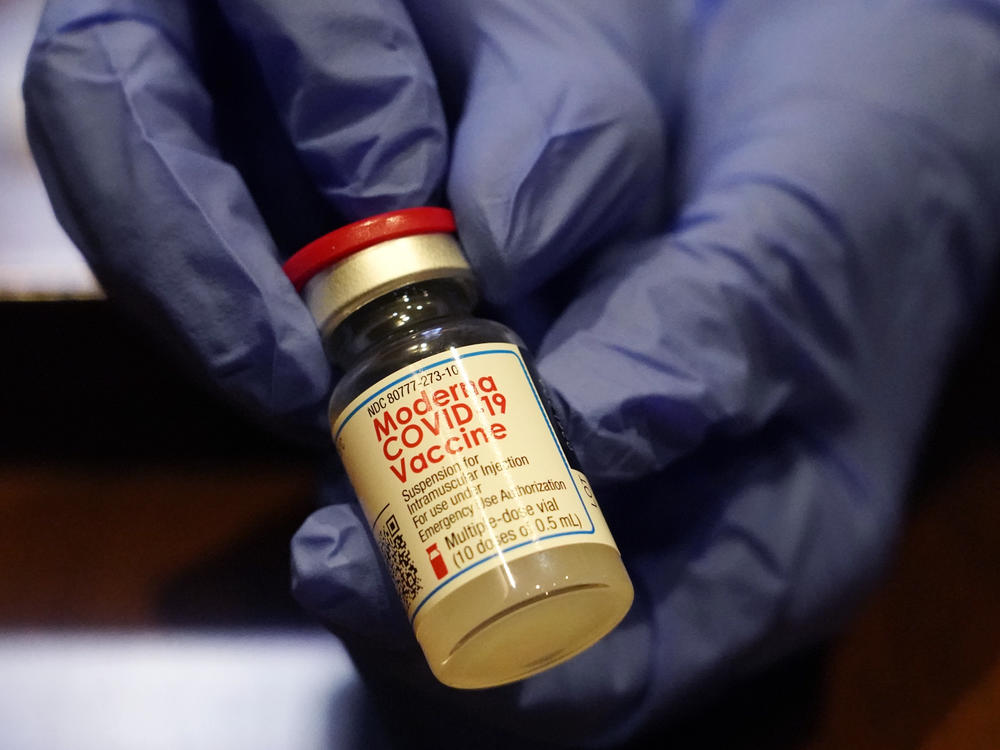Section Branding
Header Content
Hospital Scrambles To Find Patients Before Freezer Failure Ruins 830 Vaccines
Primary Content
A team of fast-acting health care workers saved the day — and potentially hundreds of lives — on Monday after a freezer malfunction nearly destroyed 830 doses of the Moderna COVID-19 vaccine.
Somewhere around 2 a.m. the compressor of the freezer holding vials of the medicine at the Adventist Health Ukiah Valley Medical Center in Mendocino County, Calif., failed, President Judson Howe told NPR.
That started a ticking clock on the shelf life of the vaccines, which can only be used for 12 hours once they're removed from refrigeration of 36 to 46 degrees Fahrenheit.
Normally, this would have triggered an alarm, Howe explained. But for some unknown reason, that also failed.
It wasn't until "a staff member physically checked it — stuck his hand in the freezer" at about 11:45 a.m. that anyone realized something was grievously wrong.
That gave the staff just over two hours before the vaccines would be declared unusable.
Within 15 minutes of being alerted to the potential disaster, Howe said, they moved into action relying on existing emergency protocols.
"We're a little bit seasoned in time sensitive crises," Howe said.
"We've got annual fires that take lives. We deal with PG&E power outages. So we are a bit seasoned in coordinating with county leadership with how we want to manage crisis situations."
In this case, they first reached out to Moderna for guidance on how to handle the vaccines but after receiving no reply from the drugmaker, Howe said their next call was to county health officials.
Together hospital staff worked the phones, sent out text blasts and relied on word-of-mouth to ensure every available vaccine dose was delivered into every available arm.
Two hundred doses were immediately sent to Mendocino County Public Health, which distributed them to some of the region's most high-risk employees and citizens, including sheriff's deputies, jail staff and some jail inmates.
Another 70 doses went to two nursing homes in the area which house many of the county's most vulnerable patients. Howe added the hospital also provided nurses to administer the vaccinations.
The remaining doses were given out at emergency vaccine clinics set up at various locations manned by hospital employees or other emergency response workers from around the region.
By the end of the day, more people received an injection in just a couple of hours than have been vaccinated since the start of the vaccine program on Dec. 18, Howe said.
He added that apart from getting the word out, one of the toughest obstacles was ensuring that every dose and patient was properly logged and entered into the county health database for follow up injections and future tracking.
It was an unfortunate position to be forced into and the attention the near-disaster has drawn for the hospital is unsettling at best.
"The crisis was going to go viral either way," Howe said. "Our job was to make sure that no vaccine went to waste."
Copyright 2021 NPR. To see more, visit https://www.npr.org.

